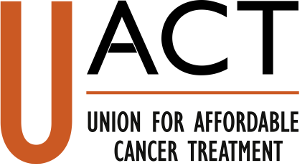The Hill (TheHill.com) is an American political news website, based in Washington, D.C. which focuses on politics, policy, business and international relations. The Hill’s coverage includes the U.S. Congress, the presidency, and election campaigns. On its website, The Hill is described as standing “alone in delivering solid, nonpartisan reporting on the inner workings of Congress and the nexus of politics and business. The newspaper and its online platform connect the political players, define the issues, and influence the way Washington’s decision-makers view the debate.”
On October 9, 2019, The Hill published an article by Peter Sullivan titled “2020 Democrats embrace aggressive step on drug prices.” The term “aggressive” in the title already is most unfortunate as it frames the issue of drug pricing as the industry would and certainly not the way advocates for increased access and lower prices would … nor anyone “neutral” on the issue.
For patients (and payers), it is clearly the industry pricing that is aggressive and not the use of existing legal remedies such as compulsory licensing or march in rights, which are clearly not used often enough.
As is well-known in the Washington, D.C. world of spin, language matters. The Hill article, unfortunately, accepts the language and framing of the pharmaceutical industry when discussing march-in rights.
For example, the Hill piece describes the 2020 Democratic candidates as “threatening to take a drastic step.” “Threatening”? Seriously? Could anyone find a more negative way to frame policy proposals that would actually contribute to lowering the price of drugs instead of just complaining about it?
Moreover, the description of the existing law for this policy proposal — here referred in a dismissive way as “the move” by Democrats — is clearly not neutral: “an obscure section of a 1980 law to break a patent.” “Obscure”? Why? Because it is not used enough most likely, but it is certainly not “obscure” for public health experts who hold congressional hearing after hearing and publish paper after paper, and have for decades reminded the National Institutes of Health (NIH) that drugs resulting from publicly funded research at the NIH must be available on reasonable terms. If not, the law is clear “the march-in authority is available”.
But again, the article repeats the overused talking points of the NIH and the industry: “NIH Director Francis Collins noted in his 2016 rejection letter that Xtandi was not in “short supply,” but advocates think the standard should be the price, not just whether there is a shortage of the drug.”
The article also uses the phrase “break” or “breaking” of a patent five times, not disclosing that there would be royalties paid to the patent owners if the patent is made non exclusive so that a less expensive drug can me made. The omission, the silence on this, is telling.
Sometimes lost in the discussion is the fact that the NIH is a part of the U.S. Department of Health and Human Services. It is the nation’s medical research agency. It is funded by our taxes. Congress has just recently approved a $2 billion raise (to $39.1 billion), for the NIH budget in a 2019 spending bill.
When a drug is developed by the NIH, the public has already paid a large and risky part of the research that was needed and we, the public, are perhaps not aggressive enough when it comes to the interpretation of “reasonable terms”. We should applaud the 2020 Democratic candidates who want to use the existing law to enforce our rights, rather than use loaded words to cast them as radicals for wanting to ensure Americans have affordable access to life-saving medicines.
Read the Hill article here:
https://thehill.com/policy/healthcare/464948-2020-democrats-embrace-aggressive-step-on-drug-prices
